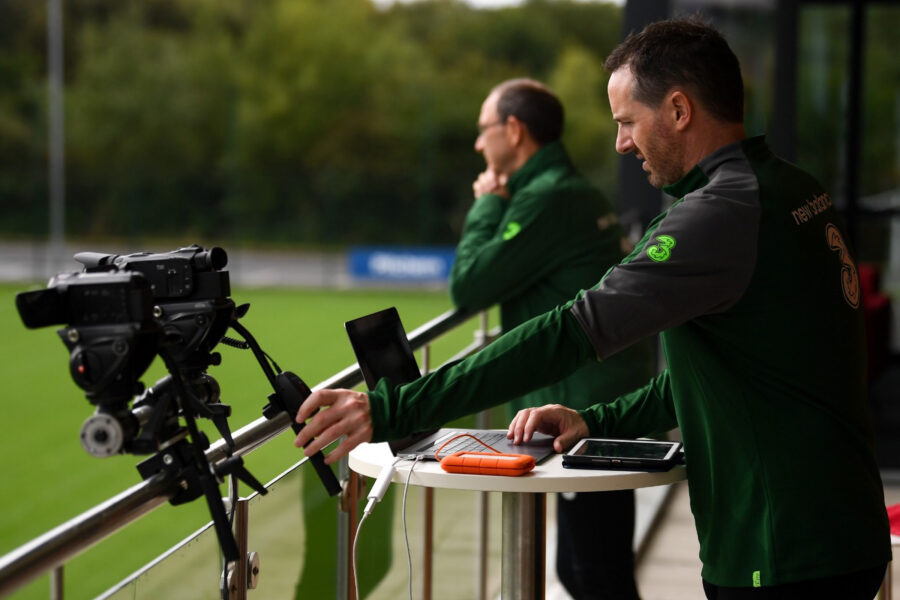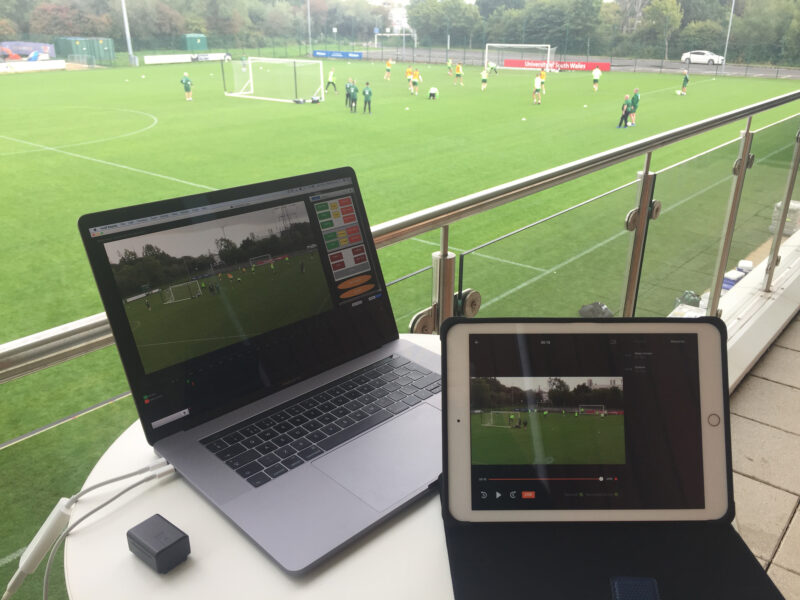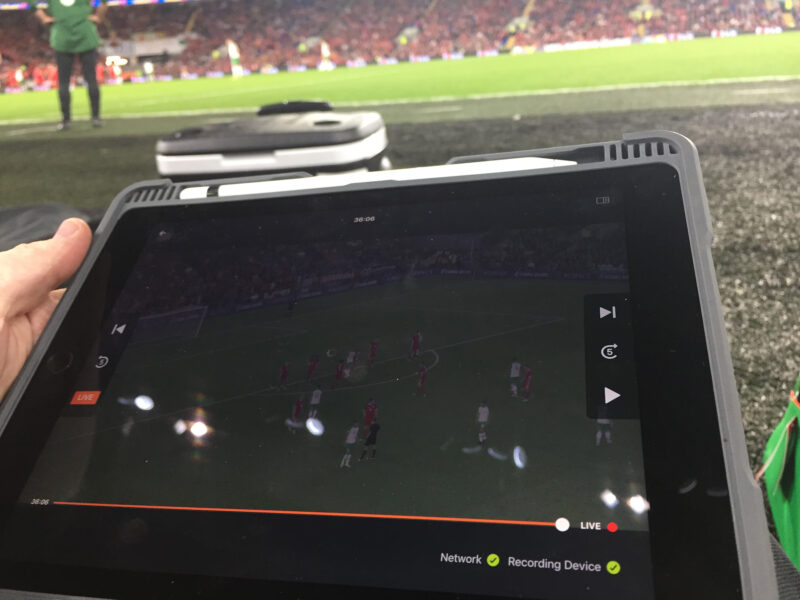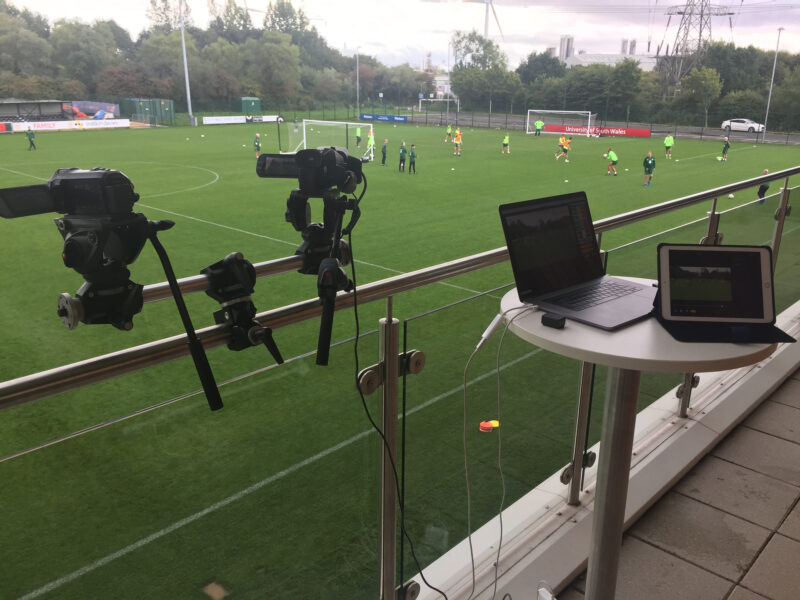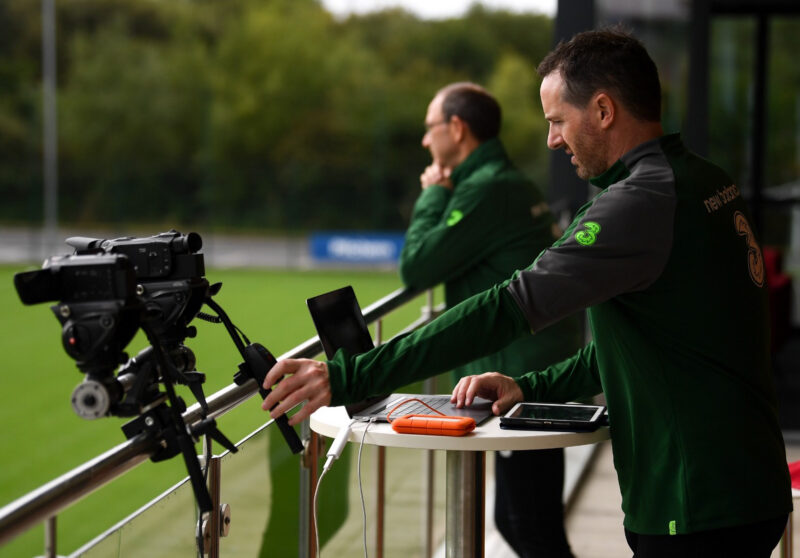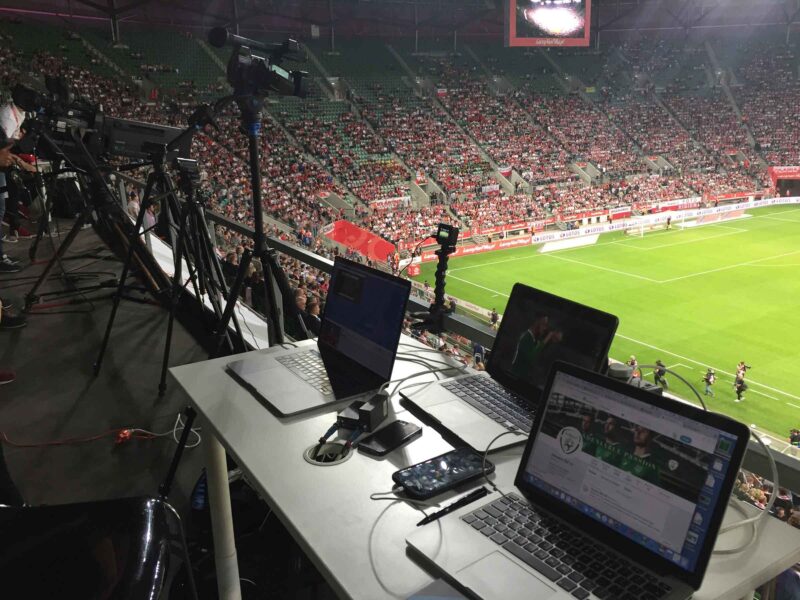Making the Connection: Live Feedback Brings Coaches and Analysts Closer Together
The Football Association of Ireland use Hudl Replay to enable collaboration between coaches and analysts, a vital connection in professional sport.
The Football Association of Ireland (FAI) gained an edge in their video analysis workflow when they added Hudl Replay.
Unlike past instant replay technology, this solution sends annotated game footage from analyst laptops directly to iPads coaches can control from the sideline. This means training and match footage feedback can be delivered instantly.
Before Replay came into the picture, FAI head performance analyst Gerard Dunne often experienced annoying time delays in getting information to his coaching team before the all-important halftime analysis presentation. He was quick to outline how Replay’s speed and efficiency has improved his team’s processes.
“Normally what would happen is information would be provided to the coaches on arrival to the changing rooms at halftime, whereas now Replay allows for footage and statistics to be provided to coaches before they enter the dressing room,” said Dunne.
“For example, it was a huge thing for us in our game against Poland as we were having quite a few problems in the first half that needed addressing.”
A key roadblock for analysts working in foreign stadiums is operating in areas that are far from the coaching dugout and dressing room.
“The infrastructure for our home games in Dublin is fine, we have a direct route for access and know security, but in some foreign stadiums you might be seven or eight floors up, or you can’t use a lift so you’re running up and down stairs,” Dunne said. Replay has saved him a huge amount of legwork and streamlined his workflow.
“When we played in Moldova, they scored a goal three minutes into injury time in the first half, so I was five minutes late to the dressing room while I looked back on that goal scenario from my position in the gantry. Previously the manager wouldn’t have a chance to look at the footage of the goal until I arrived, but now If the manager knows I’m going to have trouble getting down at halftime, he can look at the footage on the iPad and report back to the players.”
“Replay allows for footage and statistics to be provided to coaches before they enter the dressing room.”
Diagnosing on-field injuries is an increasingly important part of modern sport, both for player safety and for coaches to judge if a substitution is necessary. Instant replay has revolutionised their ability to quickly identify severity of injuries.
“In our current Nations League campaign we have already had five injuries, some in games, some in training sessions,” Dunne said. “Our medical team like to assess injuries as quick as possible. So while they are treating the player on the pitch, one or two medical staff are designated to take a look at the Replay footage on the sideline iPad in real time to see how the injury occurred and how bad it looks.
"In one case during our last campaign, we had a concussion, so by the time the medical staff got out to him, dealt with him, got him off the pitch, they needed to know the exact amount of time it had been since the player took a hit.
“They can assess [injuries] straight away on the iPad using Replay, which is huge.”
Replay integrates with Sportscode for live tagging and gives anyone on the team the ability to create and share playlists in real time. It’s the quality and efficiency of the statistical outputs that makes Replay such an asset to Dunne as an analyst.
“It’s really easy to get the app setup on your MacBook and iPad, and it’s easy to edit instances on the fly and send playlists directly to the coach’s iPad on the sideline, including comments, descriptions and annotations of game play,” Dunne said.
“Exporting analysis doesn’t take long at all. You get three export options, Sportscode XML or video file. The XML files are done in a matter of seconds.”
Since adopting Replay as their video analysis solution in May 2018, it has been a resounding success for the FAI.
“I have found it to be a really powerful so far,” Dunne said. “Trying to get information to our players quickly was the missing piece of the picture for us, especially because with international teams, players are away from our environment with their clubs until they come into camp.”
To learn more about how Hudl uses analytics to fuel the modern football, take a look at our professional case studies from Germany’s SC Paderborn 07 and Scotland's Rangers FC.
